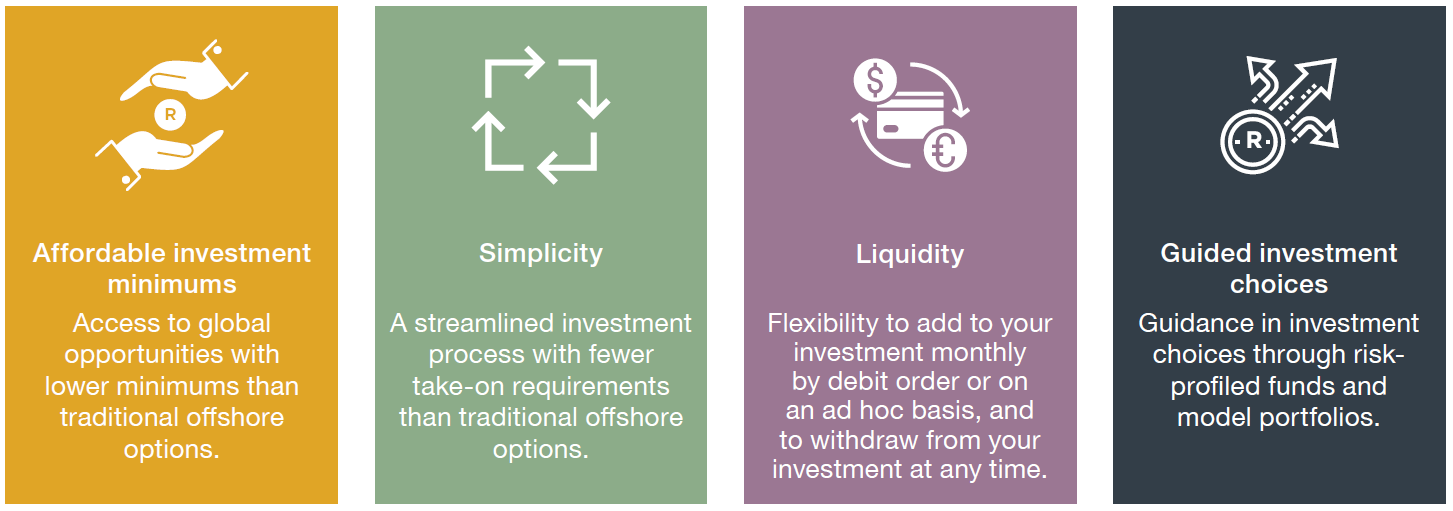Discovering How Investing Off Coast Works: A Comprehensive Overview
Spending offshore offers a complex landscape of chances and challenges. Comprehending the different types of overseas accounts is crucial for any person considering this path. The benefits, consisting of boosted personal privacy and asset protection, are significant. Legal and tax obligation ramifications require careful focus. As investors seek to optimize their profiles, the actions to establish a feasible offshore investment technique become necessary. What are the essential aspects that must navigate to be successful in this endeavor?
Understanding Offshore Accounts and Their Types
What drives individuals and businesses to consider offshore accounts? The allure of financial personal privacy, asset security, and prospective tax obligation advantages commonly attracts the focus of those looking for to handle their wide range a lot more strategically. Offshore accounts, normally developed in international territories, come in numerous forms. Personal accounts provide to individual needs, providing solutions like financial savings, financial investment, or retired life preparation. Business accounts, on the other hand, offer business wanting to assist in global purchases, boost personal privacy, or optimize tax obligations. Depend on accounts give an added layer of protection, allowing individuals to secure their assets for future recipients. Each kind of overseas account offers one-of-a-kind features, commonly affected by the regulative environment of the host country. Recognizing these differences is necessary for individuals and organizations, as the choice of account type can significantly impact their monetary strategies and conformity with worldwide laws.
Advantages of Offshore Investing
While lots of financiers seek opportunities to expand their profiles, offshore investing presents unique advantages that can improve monetary growth and security. One noteworthy advantage is the potential for property defense. Offshore accounts can protect investments from political instability or economic declines in the capitalist's home country. Furthermore, overseas financial investments often supply access to global markets, enabling investors to tap right into arising economic climates and industries that might not be available domestically.Another significant benefit is tax obligation performance. Lots of offshore territories use positive tax regimes, which can decrease tax liabilities and enhance general returns. Offshore investing can improve personal privacy, as particular jurisdictions impose strict discretion laws.Lastly, overseas accounts can help with wealth administration techniques by supplying a wider array of financial investment options, including alternate possessions such as actual estate and products. Collectively, these benefits make offshore spending an enticing option for those looking to strengthen their monetary portfolios.

Regulative and legal Factors to consider
Guiding with the regulatory and lawful landscape of offshore investing calls for cautious focus and understanding. Investing Off Shore. Financiers need to navigate a complex internet of regulations that differ markedly from one territory to an additional. Conformity with neighborhood laws is vital; failure to do so can lead to serious penalties, consisting of fines and imprisonment. In addition, recognizing the lawful structures controling international financial investments is important for guaranteeing the protection of possessions and keeping functional legitimacy.Key considerations include understanding the regulatory needs for developing overseas entities, image source such as corporations or trust funds, and adhering to anti-money laundering (AML) and know-your-customer (KYC) guidelines. Investors need to also be conscious of reporting commitments in their home nation, as numerous countries need disclosure of offshore holdings. Engaging with attorneys experienced in overseas financial investment can offer invaluable support, assisting capitalists to minimize risks and protected conformity with suitable legislations and laws while optimizing their investment potential

Tax Obligation Ramifications of Offshore Investments
Comprehending the regulatory and lawful considerations of offshore investing normally leads to an assessment of the tax obligation effects linked with these financial investments. Offshore financial investments can provide significant tax obligation benefits, consisting of reduced tax obligation rates and the capacity for tax deferment. Nonetheless, financiers should browse complicated tax guidelines in their home countries, as many jurisdictions call for taxpayers to report international income and assets.For U.S. people, the Foreign Account Tax Obligation Compliance Act (FATCA) mandates the reporting of overseas accounts, while various other countries have comparable needs. Failure to abide can lead to serious penalties. Furthermore, certain offshore funds may undergo one-of-a-kind tax obligation therapies, such as Passive Foreign Investment Firm (PFIC) regulations, making complex investment strategies.Investors should consider consulting tax specialists to recognize implications specific to their circumstances and warranty conformity with both global and residential tax obligation legislations, eventually making the most of the benefits of their offshore financial investments while reducing dangers.
Actions to Start With Offshore Spending
Many financiers seeking to diversify their portfolios transform to overseas investing as a sensible choice. To begin, one need to carry out complete study on prospective offshore jurisdictions, taking into consideration factors such as regulatory setting, taxation, and investment chances. Investing Off Shore. After picking an appropriate location, financiers must establish an offshore account, which commonly requires paperwork proving identification and resource of funds.Next, investors often engage with a monetary consultant or an overseas financial investment firm acquainted with local regulations and market dynamics. This partnership can help in crafting a customized financial investment strategy that straightens with private goals and run the risk of tolerance.Once the strategy is in place, financiers can continue to pick certain properties or funds for investment, ensuring they review efficiency and runs the risk of regularly. Maintaining conformity with both neighborhood and home country guidelines is important for effective offshore investing, needing ongoing persistance and potentially periodic examinations with legal professionals.

Often Asked Concerns
Just how Do I Select the Right Offshore Territory?
Picking the appropriate offshore jurisdiction includes reviewing factors such as regulatory atmosphere, tax obligation advantages, political security, and simplicity of operating. Investigating each choice thoroughly ensures educated decisions that align with private investment goals and run the risk of resistance.
What Sorts Of Assets Can I Hold Offshore?

Exist Dangers Associated With Offshore Investing?
The threats connected with offshore investing consist of lawful intricacies, regulatory adjustments, currency variations, and potential political instability. Financiers must very carefully review these factors to mitigate risks and warranty compliance with international legislations and laws.
How Can I Access My Offshore Funds?
To gain access to overseas funds, individuals usually require to contact their banks, provide find more information required identification and documents, and follow well established protocols for fund transfers, ensuring conformity with both local and worldwide guidelines controling offshore financial investments.
What Are Typical Mistaken Beliefs Concerning Offshore Accounts?
Common misunderstandings regarding offshore accounts consist of beliefs that they are entirely for tax evasion, lack of guideline, or accessible to the affluent. In truth, they can be reputable monetary devices for varied people. In addition, offshore investments usually supply accessibility to global markets, permitting capitalists to tap right into arising economic situations and fields that may not be offered domestically.Another substantial benefit is tax obligation efficiency. Overseas investing can enhance privacy, as certain jurisdictions enforce strict privacy laws.Lastly, offshore accounts can help with riches monitoring strategies by offering a larger range of investment alternatives, consisting of different assets such as real estate and commodities. Comprehending the regulative and legal factors to consider of overseas investing normally leads to an assessment of the tax obligation effects associated my link with these financial investments. Offshore investments can provide substantial tax benefits, consisting of decreased tax obligation prices and the capacity for tax deferment. After selecting an appropriate place, financiers ought to establish an offshore account, which typically calls for paperwork confirming identity and source of funds.Next, capitalists frequently involve with a monetary consultant or an offshore financial investment company familiar with regional regulations and market characteristics.